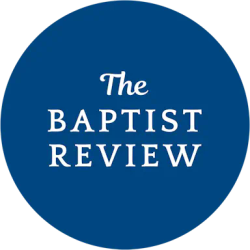We’ve all said it before: “I didn’t learn that in seminary.” Here’s the reality: seminary wasn’t supposed to teach us everything. Some things are simply learned through experience, wisdom shared by leaders ahead of us, and trial and error. This post is that kind of wisdom—hard earned, learned along the way. I’m not focused on doctrinal arguments here. Here’s my disclaimer: these are “trellis” helps, more like the wisdom of Proverbs and less like a theological argument from Romans.
With those disclaimers now in place, are 11 “stuff-that’s-not-taught-in-seminary” hacks for pastors that have disproportionately helped me in ministry.
1. People aren't following you; they're following the presence of Christ in you. The second you lose that; rest of your ministry is "light from a dead star."
There’s not a single thing in your ministry that matters like following Christ faithfully. Cultivate it. Commit to it. Cling to it.
2. The right vision with the wrong people is irrelevant.
The highest return on investment thing you can do as a pastor is to recruit, build, and invest in your team. When I was solo pastor of a 75-person church, that meant 6 A.M. cohorts with lay leaders. Now, at a church with a couple hundred staff members, it means investing in high potential staff. How are you building your team?
3. Stop living in anxiety about getting meeting-blindsided.
Have you ever been asked, “Pastor, can we meet? I have something I need to talk to you about the church.” Stop letting the unknown of the meeting ruin your day, weekend, or week. Here’s the response every time: "Sure! Just so I can prepare my thoughts, can you sketch for me what you'd like to talk about and then we can set a time to meet?"
4. The phrase "sermonettes make Christianettes" isn't true.
Instead, ask, “How many minutes good am I?” and do not preach one minute longer than that. The old adage is true: the mind cannot absorb what the butt cannot endure.
5. In general, people are not on a truth-quest, they are on a happiness-quest.
So, preaching with joy is as important as preaching with accuracy (I am being hyperbolic here to make a point). The next point is a way to do that.
6. “If you can get them laughing, you can get them listening.”
Think of humor in sermons like, "A spoonful of sugar helps the medicine go down." I'm not funny, so I have an iPhone note titled “Humor” and every time I hear something in a sermon that makes me laugh I drop it into that note with link and a timestamp. That way I know where it’s from when I share it, and how to find it easily. When I'm done writing my sermon, I look for spots that need an emotional connecting point and look for something in note I can use.
7. Output requires intake.
When I would have a hard time writing a sermon I used to think, “I've got writer's block, I'm stuck!”
You don't have a block, you have a void. You're not stuck, you're empty. Michael Phelps ate 10k calories per day day during his Olympic run. Why? Massive output requires massive intake. Weekly preachers are doing massive output. To do it well, you need massive intake. In addition to reading daily, I listen to 1 sermon per day during workout. I learned from Tim Keller that if you listen to one preacher, you become a parrot. If you listen to two preachers, you become confused. If you listen to many, you become better.
8. You create what you consume.
If you want to become a better evangelistic preacher, listen to evangelists. If you want to become a better doctrinal preacher, listen to doctrinal guys. Better leader, listen to leaders, etc.
9. Content aggregation beats content creation.
I have over a thousand iPhone notes titled by doctrine or topic, and every time I read or hear something that fits in one, I drop it into note. Now, when I start sermon preparation, I start with a pantry stocked full of ingredients. What used to take me until Thursday I now have when I begin on Monday.
At the same time, pay close attention to attribution when learning from others. Don't preach full sermons from other people w/o attribution and don't tell stories that didn't happen to you as if they happened to you. But no, aggregating commonly known Bible teaching into your sermons isn’t “plagiarism.” Read more about this in my article, “On ‘Sermon Plagiarism’ Accusations.”
10. Prioritize proportionate energy.
One critical mistake that pastors too often make is allocating Level 8 energy to Level 3 issues, and Level 3 energy to Level 8 issues. At our staff retreat every year, ask this question: "What one thing, if accomplished, would make the biggest difference in our church?" Decide what the answer is, and attack it.
11. Growing churches are like slatted-buckets. The water can only rise as high as the lowest slat.
One of these is going to be the your “lowest slat” chokepoint:
- Parking
- Seats
- Kids space
- Lobby space
- Decision-making processes
Always be identifying what your lowest slat is, and dedicate work to solving the problems that are causing the water to ‘leak’ from your bucket.
It may be that you don’t agree with everything you’ve read here. That’s ok. If you think some of this wisdom is more valuable than other, “eat the meat, and spit out the bones.” I hope some of it is helpful. As a pastor, gathering wisdom and putting it into practice is how we grow, and how our churches grow. I hope this helps you, and helps your church, as you build your trellis for the sake of the vine.


